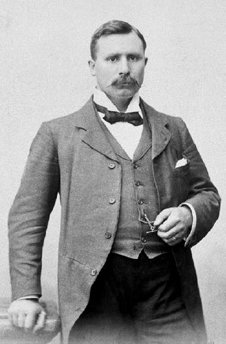Related Research Articles
The Port of London is that part of the River Thames in England lying between Teddington Lock and the defined boundary with the North Sea and including any associated docks. Once the largest port in the world, it was the United Kingdom's largest port as of 2020. Usage is largely governed by the Port of London Authority ("PLA"), a public trust established in 1908; while mainly responsible for coordination and enforcement of activities it also has some minor operations of its own.

The Transport and General Workers' Union was one of the largest general trade unions in the United Kingdom and Ireland – where it was known as the Amalgamated Transport and General Workers' Union (ATGWU) to differentiate itself from the Irish Transport and General Workers' Union – with 900,000 members. It was founded in 1922 and Ernest Bevin served as its first general secretary.

A dockworker is a waterfront manual laborer who loads and unloads ships.

Thomas Mann, was an English trade unionist and is widely recognised as a leading, pioneering figure for the early labour movement in Britain. Largely self-educated, Mann became a successful organiser and a popular public speaker in the British labour movement.
The National Transport Workers' Federation (NTWF) was an association of British trade unions. It was formed in 1910 to co-ordinate the activities of various organisations catering for dockers, seamen, tramwaymen and road transport workers.
The National Union of Dock Labourers (NUDL) was a trade union in the United Kingdom which existed between 1889 and 1922.

The 1889 London dock strike was an industrial dispute involving dock workers in the Port of London. It broke out on 14 August 1889, and resulted in victory for the 100,000 strikers when they won their pay claim of sixpence per hour, the so-called "dockers' tanner". The industrial action also established strong trade unions amongst London dockers, one of which became the nationally important Dock, Wharf, Riverside and General Labourers' Union. The strike is widely considered a milestone in the development of the British labour movement, symbolising the growth of the New Unions of casual, unskilled and poorly paid workers, in contrast to the craft unions already in existence. The strike helped to draw attention to the problem of poverty in Victorian Britain and the dockers' cause attracted considerable public sympathy.
Dockers' Union may refer to:
New unionism is a term used to describe moves to broaden the trade union agenda. It has been used twice in the history of the labor movement. Ben Tillett was a prominent leader of the London Dock strike of 1889. He formed the Dock, Wharf, Riverside and General Laborers' Union in 1889, which had support from skilled workers. Its 30,000 members won an advance in wages and working conditions.

Sir James Sexton CBE was a British trade unionist and politician.

Benjamin Tillett was a British socialist, trade union leader and politician. He was a leader of the "new unionism" of 1889, that focused on organizing unskilled workers. He played a major role in founding the Dockers Union, and played a prominent role as a strike leader in dock strikes in 1911 and 1912. He enthusiastically supported the war effort in the First World War. He was pushed aside by Ernest Bevin during the consolidation that created the Transport and General Workers' Union in 1922, who gave Tillett a subordinate position. Scholars stress his evangelical dedication to the labour cause, while noting his administrative weaknesses. Clegg Fox and Thompson described him as a demagogue and agitator grasping for fleeting popularity.

The Waterside Workers' Federation of Australia (WWF) was an Australian trade union that existed from 1902 to 1993. After a period of negotiations between other Australian maritime unions, it was federated in 1902 and first federally registered in 1907; its first general president was Billy Hughes.
The History of trade unions in the United Kingdom covers British trade union organisation, activity, ideas, politics, and impact, from the early 19th century to the recent past. For current status see Trade unions in the United Kingdom.
The South Side Labour Protection League was a trade union organising dock porters and stevedores in the United Kingdom.
Thomas Charles Lewis was a British trade unionist and politician.

Harry Orbell was a British trade unionist.
William Devenay was a British trade unionist and politician.

Thomas McCarthy was a British Irish trade unionist, who became prominent as a leader of dockers in England.
Henry William Hobart was a British socialist activist and trade unionist.
References
- ↑ Eaton, Jack; Gill, Colin (1981). The Trade Union Directory. London: Pluto Press. p. 56. ISBN 0861043502.
- 1 2 3 4 Arthur Marsh and Victoria Ryan, Historical Directory of Trade Unions, vol.3, pp.280-281
- ↑ Keith Laybourn, A History of British Trade Unionism (1992) pp 72-76
- 1 2 Jonathan Schneer, Ben Tillett: portrait of a labour leader (1982)
- ↑ Frank Bealey and Henry Pelling, Labour and Politics, 1900-1906, pp.290-292
- ↑ Labour, Report of the 19th Annual Conference of the Labour Party
- ↑ Labour Party (1918), Report of the Seventeenth Annual Conference of the Labour Party, p.192
- ↑ Declan McHugh, Labour in the City: The Development of the Labour Party in Manchester 1918-31, p.196